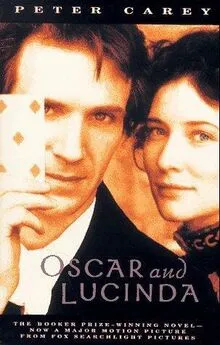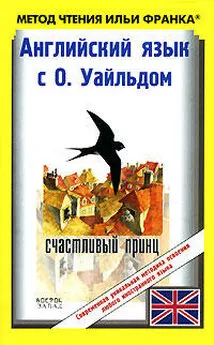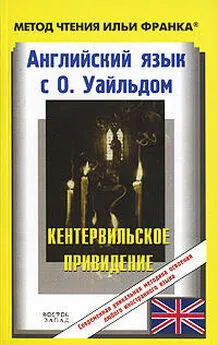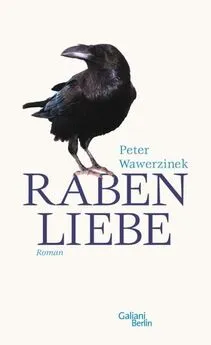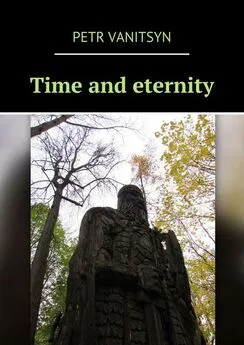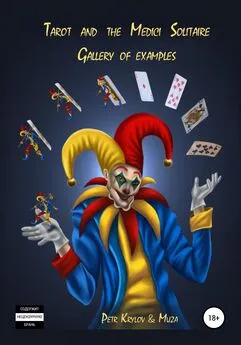Peter Carey - Oscar and Lucinda
- Название:Oscar and Lucinda
- Автор:
- Жанр:
- Издательство:Vintage Books
- Год:1988
- Город:New York
- ISBN:0-679-77750-4
- Рейтинг:
- Избранное:Добавить в избранное
-
Отзывы:
-
Ваша оценка:
Peter Carey - Oscar and Lucinda краткое содержание
The Booker Prize-winning novel-now a major motion picture from Fox Searchlight Pictures.
This sweeping, irrepressibly inventive novel, is a romance, but a romance of the sort that could only take place in nineteenth-century Australia. For only on that sprawling continent-a haven for misfits of both the animal and human kingdoms-could a nervous Anglican minister who gambles on the instructions of the Divine become allied with a teenaged heiress who buys a glassworks to help liberate her sex. And only the prodigious imagination of Peter Carey could implicate Oscar and Lucinda in a narrative of love and commerce, religion and colonialism, that culminates in a half-mad expedition to transport a glass church across the Outback.
Oscar and Lucinda - читать онлайн бесплатно полную версию (весь текст целиком)
Интервал:
Закладка:
Tin
Pot and Kettle
began, walking away. Her shoulders were round. Her neck was forward. He did not know what had gone wrong. Had he not been manly amongst her men?
"Thank you, Arthur, I will."
He heard cheering. He turned and saw the men had spilled out of the works and had lined up against the wall with their tankards. They were cheering their employer who was walking past, her head bowed. When the cheering began she put up her umbrella to shield her face from them.
"Goodbye, Arthur."
"Goodbye, sir, and it is a privilege, sir and I myself was never married and that is a fact, sir, and it is not that I am not a Christian. My mother was a Baptist and my old dad a Unitarian, and we attend a chapel now and then but I will tell you this, sir, for it is a comfort to me and may be one to you…"
"Thank you, Arthur."
"An old chap, a Mr Hollis, a what-you-call-them Christian Socialist, informed me that the institution of marriage-I'll walk with you, sirdon't worry about the lads. Give them a wave, sir, that's right. This old fellow, oh, what a beard he had, silver-white and down to his belt. He could tuck it in his trousers, and sometimes did when he was shickered. He told me that the institution was nothing our Lord said, but was introduced at a later date, and by one of the popes no doubt, and it was all to do with property, and not our Lord Jesus, but was related to the Church taking over the recording of things. Well, my memory is a leaky vessel. Give them a wave, sir, they're pleased to have you. They are happy for the missus, that she has a man at last. It has been hard for her. There are some of us that will regard you as a real relief, sir. Well, goodbye, and it has been a privilege."
Oscar hurried after the black, umbrella-humped figure. He waved back. And he made such a comic figure, his hat pushed back on his head, as he leaped across a puddle, waved an umbrella, jumped to avoid some oxen droppings, that the men all laughed, but not maliciously. They walked back to their barrel smiling and shaking their heads. Their new master was an odd bird, but not a knave.
What appointment? Oscar knew of no appointment. An appointment for her, perhaps, but not for him. He was disappointed for he wished to do nothing so much as talk to her. He felt he had opened a door into her life. He would like to sit somewhere, a place with marble tables. If it had been London they would go to the
Oscar and Lucinda
Café Lux in Régent Street. A glass of port wine for the lady. Or merely China tea, and then they could talk about this glass business of hers.
It had never occurred to him that a process of manufacture could be beautiful. Had you, an hour before, asked him to tell you what he would call beautiful he would have drawn on the natural world, and named the species along the lanes of Devon, or brought up for you, plunging his hands into the rock pools of memory, the anemone his father had drawn and named, these fine soulless creatures which had, just the same, been made by God. He would have shown you the Strattons' harvest stocks (and forgotten they had scratched his arms and made them itch all night) or the rolling, dangerous sea seen through a familiar window with a two-foot-thick sill. He would never have led you into a building with a rusting, corrugated roof, or taken you between lanes made from bottle crates, or littered with glittering shards. In these places you expected foulness, stink, refuse, and not, certainly not, wonder.
But it was wonder that he had found, and he had felt it in his water, before he saw anything to wonder at, that this dry, swept place-he knew this the minute he was inside the door-contained something exceptional.
They led him to a glory-hole, had him look in, into the protean world where you could not distinguish between the white of pure heat, the white of the crucible, and the white of the molten glass which they named "metal." When Arthur had said "metal," Oscar had understood "tin" or
"silver" or "gold." And when the gatherer drew out the substance it could have been all of these things. The red-hot orb at the end of the long rod which he watched, passing from man to man, from glory-hole to glory-hole, acquiring more metal, being blown a little, swung, handed on, until it came to that largest, most slovenly of all of them. And then he who dubbed himself (privately, whispered it in Oscar's ear) to be none other than the famous knight Sir Piss-andWind, took the long rod and was, at once, drum major, bagpipe master, trumpeter, transmuter, as he transformed the metal into a tankard. He sat himself at last on his wooden throne and rolled the long rod back and forth across its arms whilst he smoothed a base with wet pear wood which hissed and steamed in clouds around his tea-and-alestained whiskers. He took a snake of red elastic glass from the third gatherer and, lifting it high-where it looked as angry as a snake in an eagle's claws-made it, with a flourish, into a question mark, and thence, a handle. It was all so fine, so precise, and it was a wonder
312
Pot and Kettle
that this miracle was wrought by a whiskered Falstaff with a fat belly and a grubby singlet showing through the layers of wet, sour hessian.
"I am a human bellows, sir," Arthur claimed, waving his hand for someone to come and take his creation from him. "That is what I have made of myself."
But it was not this that thrilled Oscar about glass, that a man had made his body to comply with the needs of manufacturing, but that a man so obviously gross and imperfect could produce something so hne.
Glass. Binding white. Glowing red. Elastic. Protean. Liquid. Vessel for light. He hurried after the proprietor. He was a tangle-legged usurper, a shiny-suited thief. He was a butterfly collector, an art buyer, walking fast after the thing that had produced such wonder. He would be a part of this, any way at all.
She fled him, walking quickly, like an honest citizen who feels a pickpocket on his tail. She headed up York Street and then turned in towards the crowds at the markets. He pushed his way through narrow alleys between the stalls. It was a sunny spring day, but in here there were lanterns hung between the sausages, and he followed her large black hat as she turned, bumping into people between bolts of calico, piles of moleskins, racks of blue metal shovels lined up like weapons in an armoury, and out into the blinding light of George Street. She walked at such a pace that even Oscar, with his legs a good foot longer, his stride another two feet in advantage, had trouble keeping her in sight.
But he would not let her go. He jostled and skipped, pushed and pardoned. He tracked her back down Sussex Street. They passed the alleyway above which the majority of his colleagues still worked over their ledgers. Only six buildings down, but on the other side of the street, she went into a tall brick building with bright yellow sandstone ledges to its windows. Prince Rupert's Glassworks (Office) 5th Floor.
Printing presses occupied the first three floors and the building thumped with their rhythms. The staircase was filled with the harsh and volatile odours of inks. Through an open door he saw men in aprons filling their forms from fonts of type. He was sweating as heavily as if he had sat in his normal place in Mr d'Abbs's establishment.
The farms on the fourth floor were, either through lack of custom or because of progressive management, closed for the Saturday afternoon. The landing was quite deserted, apart from a charlady on her
313
Oscar and Lucinda
knees, clicking her tongue about this second vandal come marching across her work. She was not mollified by tiptoeing.
Three firms had their names displayed on dark wooden doors on the fifth floor, all done in different scripts in careful gold leaf with jetblack gold shadows. The first one he looked at was Prince Rupert's Glassworks.
He knocked, but only lightly, and erttered after the very briefest pause. It was no more than a single room, a desk, three chairs, all crushed beneath a sloping ceiling. There was no rug on the floor, but the wall behind the desk held a framed etching of the Crystal Palace, and on the wall opposite the windows (at which Lucinda now stood, her graceless hat held in her hand) there was a great bank of glass shelves displaying a dustless collection of bottles (green, bright yellow, poison blue) and square book-sized sheets of glass in various finishes and colours. As the sun now played upon these shelves they glowed and bled and washed across each other like the contents of a casket in a children's story.
Smiling, Oscar thought: A bower-bird.
Her desk was cedar and also topped with glass. It held a single pot of ink, a pen, no blotter. A tall blue vase held a flag flower, which was now decidedly past its best. A single petal and a fine dust of pollen lay upon the glass-topped desk.
The smokestack of Miss Leplastrier's factory grew from her left shoulder. She did not turn. He could see the soft whirl of hair at the base of her neck. When he stood behind her-he was very close, no more than a foot away-he could see that the men had set up a tug of war in the yard. It was obvious that several of them were very drunk indeed.
It was only then, so close, that he saw her shoulders shaking. This emotion frightened him. He had not expected it. Now he did not know what he should do. He joined his hands together. He was aware of how sticky and sweaty he was. He thought: This is a private place. He thought: I must smell. He spoke her name. He touched her shoulder. She turned. Her proud face was all collapsed, like a crushed letter thrown into a basket. Her clear skin was suddenly marked with little channels-creases, cuts, in a delta down her chin, on her nose, and her big green eyes were glasses held by a drunk, brimful, splashing, not gay, of course, but caught in the pull of the outward tide of anger and the inward one of hurt.
He had no idea what caused it all but, stooping a little, he opened his arms to her and held her against him. She was so tiny.
TI4
80
THè Private Softness of Her Skin
He was tender with her. He wiped her eyelids with his handkerchief, not noticing how soiled it was. It was stained with ink, crumpled, stuck together. Her lids were large and tender and the handkerchief was stiff, not nearly soft enough. He moistened a corner in his mouth. He was painfully aware of the private softness of her skin, of how the eyes trembled beneath their coverings. He dried the tears with an affection, a particularity, that had never been exercised before. It was a demonstration of "nature." He was a birth-wet foal rising to his feet. He fetched the chair from behind the desk. When he lifted it, the back separated from the seat and clattered to the floor.
"Oh dear." Lucinda sat, sniffing, on the window ledge. "Everything is in collapse." And, indeed, this was how the office seemed to her, not merely today, but today more than before. It had never been what it appeared to be-the physical monument to her success, her solidity. There was a heavy desk, various bureaux, cabinets, samples of manufacture, but she could never see them as solid, but as theatrics. This office was her place of exile, and never more than when the window framed a picture of drunken men playing tug of war. She felt humiliated and powerless, like a child dragged down the street by a large dog on a leash.
Читать дальшеИнтервал:
Закладка:
